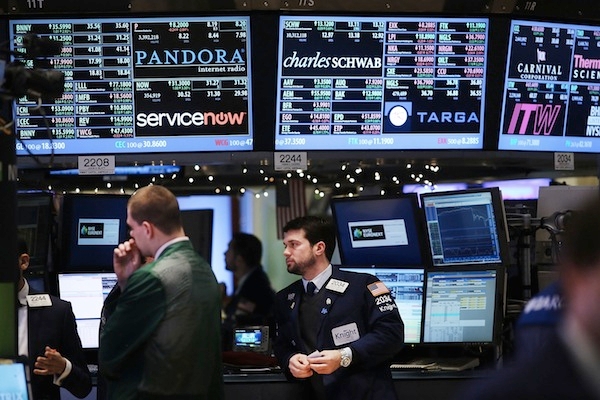There was no shortage of momentous events in 1997. It was 20 years ago that Tony Blair was elected Prime Minister on a wave of New Labour optimism, Britain handed Hong Kong back to China and Princess Diana died in a car crash in Paris.
Less earth-shatteringly, the former Alliance & Leicester building society and the mutual insurance company Norwich Union both floated on the stock market. The rest of the world has probably forgotten, but it was great news for me: I happened to have savings in both, so I received a couple of hundred quid in free windfall shares.
Instead of splurging on a holiday, I decided to put them into a tax-efficient Personal Equity Plan, which for younger readers was a prehistoric version of a stocks and shares ISA. My plan was to re-invest the dividends and build up a portfolio over time.
At first, there was very little in the way of dividend to reinvest, just a few quid. Nevertheless, I persisted. I diversified out of my two original holdings in the financial sector into oil, utilities and other sectors, choosing companies I thought would be reliable dividend payers, so they would generate more money to buy new shares.
Not every investment worked out. Marks & Spencer wasn’t one of the best picks, though I do enjoy the free vouchers that come as shareholder perks. Alliance & Leicester was a casualty of the credit crisis, though Norwich Union, now part of Aviva, fared better. Even so, my little portfolio is now worth several thousand pounds, not life-changing, but pretty nice for an experiment that started out as a bit of fun.
So what? Well, it’s not a bad lesson in the power of dividends. We tend to be obsessed with share prices – that’s what is quoted on the news and in the finance pages – but re-investing dividends can be a very important component of total returns. Over time, thanks to compounding, those re-invested dividends generate dividends of their own, supercharging your portfolio. It’s a snowball effect where over time, small sums add up.
I think of it as a formula: T+C=M, or Time plus Compounding equals Magic.
In case you think I am smug about my free shares, I’m actually kicking myself because I could have done better. Much better.
If I had started investing £100 a month in the stock market in 1997 and re-investing those dividends, then I’d be an awful lot better off.
Assuming I had invested the money (£24,000 in total) in the FTSE All-Share and reinvested the dividends I would now have nearly £51,000 according to investment group Fidelity International. That compares with just under £35,000 if I hadn’t re-invested the dividends.
Putting the money into a deposit account, however, would have been by far the worst option, producing just over £26,000 –a tiny return over two decades.
Rats. Having said that, it’s not too late to start now.
Of course, it’s easy to be wise with hindsight and it’s not as simple as it sounds to pick solid dividend-generating shares. But the same T+C=M formula can apply with equity income funds, which are popular with dividend-seeking investors who want to leave the headache of share selection to a professional fund manager. Financial adviser Hargreaves Lansdown reckons the UK equity income sector has returned four times more than cash savings over ten years, with a £10,000 investment growing to almost £15,800 compared with under £11,400 in an instant access savings account.
Dividends can tell you a lot about a company. Bosses hate dividend freezes or cuts, so if the management is promising to increase the divi, that is a big sign of confidence.
Shares or funds of course are riskier than cash savings – but the returns on deposits are pitiful, and will be corroded by inflation. Because dividends reflect real growth in company profits and faith in its prospects, they have a better chance of being inflation proof.
There are a couple of caveats, as always. If a dividend looks implausibly high, it probably is. Cash, even at low rates of interest, is the best place for short-term savings and an emergency fund.
Still, I absolutely adore dividends. As far as I’m concerned, diamonds may sparkle but they don’t pay an income: it’s dividends that are a girl’s real best friend. And, for that matter, a bloke’s.
Ruth Sunderland is City Features Editor of the Daily Mail






Comments